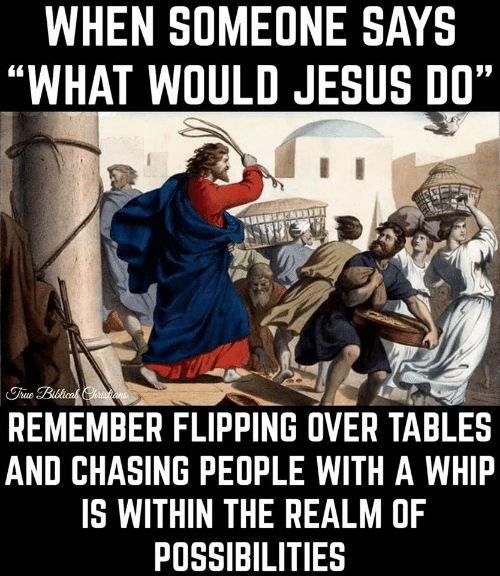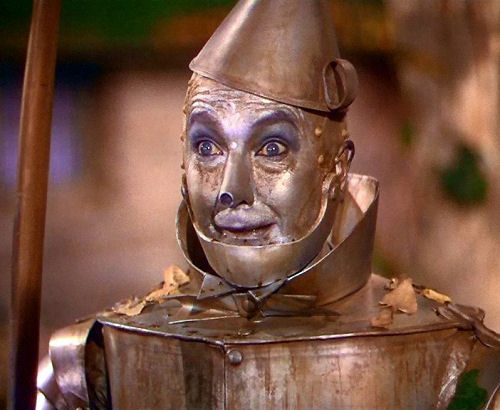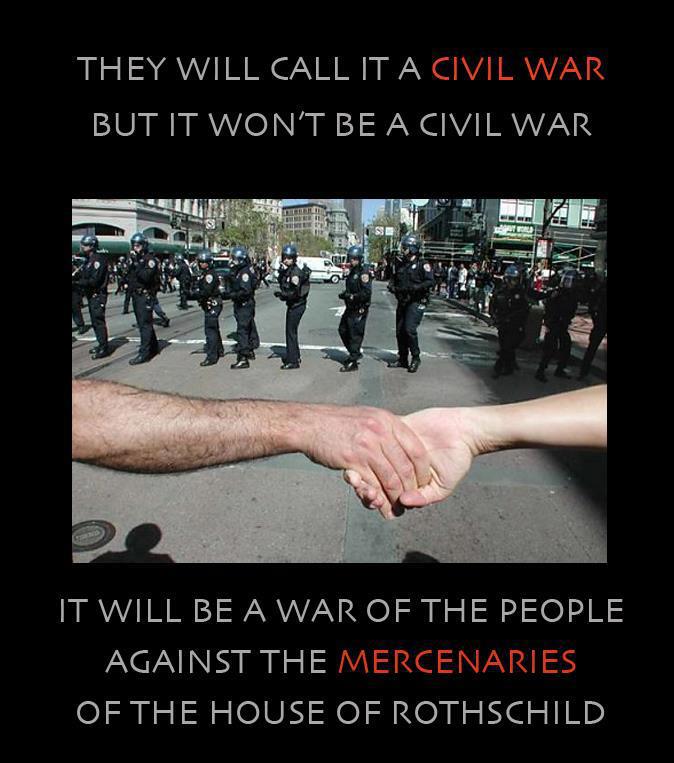
|

33 AD
"The important firm of Seuthes and Son, of Alexandria, was
facing difficulties
because of the loss of three richly laden ships in a
Red Sea storm, followed by a
fall in the value of ostrich feather and ivory.
At the same time the
great house of Malchus and Co. of Tyre with branches at Antioch and Ephesus,
suddenly became bankrupt as a result of a strike among Phoenician workmen and
the embezzlement of a freedman manager.
These failures affected the
Roman banking house, Quintus Maximus and Lucious Vibo.
A run commenced
on their bank and spread to other banking houses that were said to be involved,
particularly Brothers Pittius." - Otto Lightner, History of Business
Depressions
Tiberius decreed 1⁄3 of
every senator's fortune be invested in Italian land.
The senators had
18 months to make this adjustment.
When Publius Spencer, a wealthy
noblemen, requested 30 million sesterces from Balbus Ollius, he was unable to
fulfill his request.
Over the next few days, prominent banks in
Corinth, Carthage, Lyons and Byzantium failed.
This led to a bank panic
and the closure of several banks along the Via Sacra.
The panic swept
throughout the Empire including Egypt, Greece and France.
The decrees
precipitating the problem were suspended.
100 million sesterces was
taken from the imperial treasury and distributed among reliable bankers, to be
loaned to debtors with assets.
No interest was to be collected for three
years.
Real property
fair market value is doubled for
loan purposes to stop foreclosure.
This
enabled many people to avoid selling their estates at low prices, stopping the
fall in prices and liquifying the
financial system.
The financial panic ended as quickly as it began
due to increased liquidity.
When Tiberius died his 2.7 billion sesterces
went to his adopted son Caligula.
1814
George Peabody opens business in
Georgetown, DC as Peabody, Riggs & Company operating the Georgetown
Slave Market.
Heavy government borrowing to finance the War of 1812
leads to a shortage of capital reserves in existing banks which leads to the
establishment of new banks, thus greatly expanding the money in
circulation.
Duke of Wellington attacks and forces
Napoleon Bonaparte to
abdicate.
Louis XVIII is crowned King of France.
Napoleon Bonaparte is exiled to the
tiny island of Elba, off the
coast of Italy.
1815
Napoleon Bonaparte escapes
exile and assembles an army which the Duke of Wellington defeats less than 90
days later at Waterloo.
Nathan Mayer
Rothschild sends a trusted courier to Waterloo where he remains on the edge
of the battlefield.
Peabody, Riggs & Company move to Baltimore where
they operated from 1815 to 1835.
George Peabody finds himself
increasingly involved with business originating from London, and in 1835, he
established the firm of George Peabody & Company in London.
Nathan
Mayer Rothschild funds George Peabody's ascension into London society.
George Peabody operates in stock markets with a half million lb on
hand, and became very astute in buying and selling on both sides of the
Atlantic. Junius Spencer Morgan, father of
John Pierpont
Morgan, acts as George Peabody's American agent.
George Peabody
later concieves of the idea of tax-exempt charitable foundation by founding the
Peabody Fund established in 1867 with $2 million.
The Peabody Fund was
established to provide money for construction, endowments, scholarships,
teacher and industrial education for newly freed slaves.
The Fund would
seek locations where there were sufficient numbers of students and cooperative
public officials who would combine the relatively small grant with tax money to
build the school.
Northern merchantilists wanted to industrialize the
South.
George Peabody is succeeded by Junius Spencer Morgan.
Junius Spencer Morgan expands the firm's activities by
shipping large quantities of railroad
iron to the US from England.
1816 This
unregulated expansion leads Congress
in to pass a bill permitting yet another privately owned central bank to regulate the
money supply.
This bank
is called the, "Second Bank of the US," and it's charter is a carbon
copy of its predecessor, the First Bank of the US.
The US
government supposedly owns 20% of the shares of the bank.
Second
Bank of the US calls a halt to the expansion of the
money supply launching the process of
contraction which creates the Panic of 1819.

Panic of
1819 A contraction in the money supply marks the end of the economic
expansion following the War of 1812 sparking panic.
The
financial crisis results in
widespread foreclosures, bank
failures, unemployment, and a slump in agriculture and manufacturing.
1826 Talley stick is taken out of circulation in
England.
1828 Senator Andrew Jackson of
Tennessee is elected President.
1832 Second
Bank of the US asks Congress to pass a renewal of the bank's charter four
years early.
Congress complies and sends the bill to Andrew Jackson for
signing.
Andrew Jackson vetoes the bill.
Congress is unable to
override the veto.
Andrew Jackson stands for re-election and for the
first time in American history
he takes re-election
campaign on the road.
His campaign slogan is, "Jackson And No
Bank!"
1833 Andrew Jackson
appoints Roger B. Taney as Secretary of State for the Treasury, with
instructions to start removing the government
deposits from the
Second Bank of the US.
Andrew Jackson's previous two Secretaries
of State for the Treasury, William J. Duane and Louis McLane both refused to
comply with Andrew Jackson's request and were fired as a
result.
Nicholas Biddle blocks Roger B. Taney's nomination and threatens
to cause a depression if the Bank is not re-chartered.
"This worthy
President thinks that because he has scalped Indians and imprisoned judges, he
is to have his way with the Bank. He is mistaken."- Nicholas Biddle
Nicholas Biddle then went on to brazenly admit that the
central bank was intending to make money
scarce in order to force the hand of Congress into re-chartering the bank.
Second Bank of the United States sharply
contracts the money supply by
calling in old loans and
refusing to issue new ones.
A financial panic ensues.
"In the
fall of 1833 the removal of the deposits was made, and the Panic of
1834 followed.
The bank, by October, 1834, had contracted it
circulation nearly 20 per cent.
When its attempt to coerce a restoration
of the deposits and a renewal of the
charter failed it commenced an expansion.
The great expansion produced
the disastrous excesses of 1835 and 1836. The bank is justly responsible for
the whole amount of the expansion from the lowest point of contraction in
1834." - Samuel Jones Tilden
1835 Congress
assembles the "Panic Session" on March 27 Andrew Jackson is officially
censured by Congress for withdrawing funds from the Second Bank, in a vote
which passes the Senate by 26 to 20.
Nicholas Biddle boasts in public
about the plan to crash the American
economy.
In a complete about turn on April 4, the House of
Representatives voted 134 to 82 against re-chartering the Second Bank of the
US.
Second Bank is responsible for receiving and maintaining all the
deposits of the federal
government including revenue generated from customs duties taken from
foreign trade as well as sales of federal land in the West.
Second Bank
notes are the only notes accepted by the federal government for payment of
federal taxes.
A special committee is established to investigate
whether the Second Bank of the US had caused the crash.
When the investigating committee arrives at the
bank's door in Philadelphia
with a subpoena authorizing them to inspect the books, Nicholas Biddle refuses
to give them up, or allow inspection of correspondence with Congressmen
relating to their personal loans and advancements he has made to them.
Nicholas Biddle also refuses to testify before the committee back in
Washington.
Almost a third of Second Bank stock was held by foreigners,
mostly in Great Britain.
Second Bank charter advantaged foreign holders
of the Bank's stock over domestic holders because foreigners were exempt from
state and federal taxes on the dividends paid out to them.
"While the Second Bank did not directly control the
nation's monetary policy, the large amount of deposits and
constant demand for its notes allowed it
indirectly control the money
supply of state and private banks.
By accumulating large amounts of
other banks' notes in its vaults, the Second Bank of the United States could
reduce the amount of credit these banks were capable of issuing by redeeming
notes for specie to reduce the amount of deposits held within the bank.
In the same vein, they could allow credit to expand by holding other
banks' notes in their vaults or depositing specie into state and private banks
, thereby allowing those institutions to
issue more credit.
The sheer size of the bank's balance sheet gave it a
large rein of control over the inner workings of the nation's state and private
banks." - Kevin Mulcrone 2017
1836 Charter
for the Second Bank of the US expires, and the bank ceases functioning as
America's central bank.
Nicholas
Biddle is later arrested and charged with fraud.
Nicholas Biddle is
tried and acquitted but dies in 1844 still
battling civil suits.
Panic of 1837
Bank of England increases the interest rate paid to depositors
effectively curtailing investment in America in response to Andrew Jackson
refusing to renew the central bank
charter.
Lack of
liquidity in the credit market due to the withdrawal of funds creates the
Panic of 1837.
Out of 850
banks in the US, 343 closed entirely, 62 failed partially, and the system of
state banks received a
shock from which it never fully recovered.
Contraction of the
currency immediately follows.
"The Panic of 1837 was aggravated by the
Bank of England when
it in one day threw out all the paper connected with the US." - Henry
Clews
There was no expansion of the currency after 1837 until the
discovery of the
gold mines of California in 1849 and
the silver mines in Nevada in
1859.
Brown
Brothers withdraw from the domestic lending business.
1838 Andrew Jackson pays off the
final installment of the national
debt.
Richard Lawrence attempts to shoot Andrew Jackson, both
pistols misfire.
Richard Lawrence
openly brags that
powerful people in Europe
hired him and promised to protect him.
Richard Lawrence is
found not guilty by reason of
insanity.
1850 State banks again began to expand, and once more America
had fair prices for produce and prosperous times.
The expansion
continues until 1857.
There is no inflation, the currency is not in
excess of the legitimate needs of business and prices are not too
high.
Jacob (James) Rothschild in France is said to be worth 600 million
francs, which at the time is 150 million francs more than all the other bankers
in France put together.

Between
1854 to
1864, Rothschilds
tender:
$200,000,000 to England;
$50,000,000 to
Austria;
$40,000,000 to Prussia;
$130,000,000 to
France;
$50,000,000 to Russia;
$12,000,000 to
Brazil;
in all
$482,000,000 in loans.
1852 "From the time I took office as Chancellor of
the Exchequer, I began to learn that the State held, in the face of
the Bank and the City, an
essentially false position as to finance. The government itself was not to be a
substantive power, but was to leave the
Money Power supreme and
unquestioned." - William Gladstone
1855
Creditanstalt-Bankverein founded by Anselm Salomon Freiherr von
Rothschild to finance industrialization projects in the
Austrian Empire primarily in
the field of railroad construction (Lombardian-Venetian state-owned railway)
and the iron industry (Prague Iron
Industry Company).
1856
The Russian Empire
loses the Crimean War, fought from October 1853 to February 1856, to an
alliance of the Ottoman
Empire, France, Britain and Sardinia.
The initiating cause involved
the rights of Christian
minorities in the Holy Land, which is a part of the
Ottoman Empire.
The
French promote the rights of Roman
Catholics, while Russia promotes those of the
Eastern Orthodox Church.
Panic of 1857
New York City
branch of the Ohio Life Insurance and Trust Company fails when the
Bank of England calls all loans to
British investors in American banks.
Grain prices fall with the end of
the Crimean War and Russian re-entry into
global markets.
Land speculation based on forecasts of new
railroads collapses.
More than 5,000 American businesses failed within a
year.
The Bank of
England lends George Peabody £ 5,000,000 during the Panic of
1857.

1861 American Civil War begins at Fort
Sumter, South Carolina, after South Carolina leaves the Union.
Slavery has always been cited as the cause of the war but
that is a fallacy.
"I have no purpose directly or
indirectly to interfere with the institution of slavery in the state where it
now exists. I believe I have no lawful right to do so, and I have no
inclination to do so. My paramount objective is to save the Union and it is
not either to save or destroy slavery.
If I could save the Union without freeing any
slave, I would do it." -
Abraham
Lincoln
The Southern States were in a dire economic situation due to
the actions of the Northern States.
Northern industrialists had used trade
tariffs to prevent the Southern States from buying cheaper European goods.
Europe subsequently retaliated by
stopping cotton imports from the South.
The South, forced to pay
more for goods, found income slashed.
"The division of the US
into federations of equal force was decided long before the Civil War by
the high financial powers of
Europe, these bankers were afraid that the United States if they remained
as one block and as one nation, would attain economic and financial
independence which would upset
their financial domination over the world.
They foresaw tremendous
booty if they could substitute two feeble democracies, indebted to the Jewish
financiers, to the vigorous Republic, confident and self-providing.
I
fear that Jewish Banks with their
craftiness and tortuous tricks will entirely control the exuberant riches
of America, and use it to systematically corrupt modern
civilization.
The Jew will
not hesitate to plunge the whole of Christendom into wars and chaos, in order
that the earth should become the inheritance of Israel." - Otto Von Bismark
stated as Chancellor of Germany (1871 - 1890)
Only months after the
first shots are fired in South Carolina the soulless central bankers loan
Napoleon III of France (the nephew of Napoleon Bonaparte), 210 million francs
to seize Mexico and station
troops along the Southern border of the US, by taking advantage of the
American Civil War to return
Mexico to colonial rule.
This was in violation of the, "Monroe Doctrine," which was issued by
President James Monroe during his
seventh annual State of the
Union address to Congress, in 1823.
In return, the
US agreed to stay neutral in wars between European powers and in wars between a
European power and
its colonies.
However, if
these latter type of wars were to occur in the Americas, the US would view such
action as hostile toward itself.
While the French were breaching the,
Monroe Doctrine in Mexico, the
British followed suit by moving 11,000 troops into Canada and positioning them
along the Canadian border.
December 27, 1863
Allgemeine Österreichische Boden-Credit-Anstalt founded entirely
independent from government.
Austrian central bank policymakers are
unhappy with the premium which has to be paid when exchanging Austrian
banknotes for silver.
"Rothschild's
war profits from the Napoleonic
Wars financed their later stock speculations.
Under Metternich, Austria
after long hesitation, finally agreed to accept financial direction from the
House of Rothschild." -
Richard Lewinsohn, Profits of War
1864
Anglo-Oesterreichische Bank founded.
During the "Grundentlastung," many
members of the high
nobility have a substantial amount of liquid funds at their disposal and
become major shareholders in many of the new joint stock corporate banks.
The financial resources of the Viennese financial center increases
rapidly.
Anglo-Oesterreichische Bank is given the sole right to issue
currency.
The Austrian government relies on this to continue to fund the
war.
International bankers take control.
1866
Tsar Alexander II of
Russia narrowly escapes an assassination attempt in the city of Kiev by Dmitry
Vladimirovich Karakozov.
Ferdinand Cohen-Blind fails to assassinate
Otto von Bismarck in Unter den
Linden in Berlin.
On June 14 the Austro-Prussian War begins.
Due
to a breach of the
provisions of the sole currency issuing
right the government is obliged to pay compensation in the form of
interest.

Panic:
September 18th, 1873
The root cause of the Panic of 1873
orginates in the first private joint stock corporate bank authorized by the
Austrian government and set up on the initiative of the House of
Rothschild.
The "KK Privilegierte Creditanstalt für Handel und
Gewerbe" (a credit institution catering to trade and industry) intended to
practice its business activity primarily in
the field of railroad construction
companies (Lombardian-Venetian state-owned railway) and
the iron industry (Prague Iron
Industry Company).
Two dozen insurance
undertakings go into liquidation or became
bankrupt with the meltdown of the
Vienna Stock Exchange in
Austria.
Speculation on future
trade, previous debt amassed fighting the Austro-Prussian War, and
large expenditures on the World Exposition held in the
Austrian-Hungarian capital of
Vienna create the failure.
On September 18, due to the meltdown of
the Vienna Stock
Exchange, Jay Cooke, a major
component of the American banking establishment, is unable to market several
million dollars in Northern Pacific Railroad bonds which precipitates
bankruptcy.
Panic sweeps the New York
Stock Exchange precipitating the Panic of 1873.
Although the
American branch of Jay
Cooke goes bankrupt - the London branch suffers no ill
effects.
1874 Mr. Buell enjoys a larger
reputation throughout the country than many very able financiers at the head of
New York bank institutions.
Committee on banking and currency of
Congress invites Mr. Buell to visit Washington and unfold his views of a proper
remedial policy before that body.
1875 Mr.
Buell' theory of national credit and currency impress' the committee and they
push the Resumption Act, which calls for the secretary of the Treasury to
redeem legal-tender notes in specie beginning Jan. 1, 1879.
1875 18,000 American companies have failed.
1877 "It is advisable to do all in your power to sustain such
prominent daily and weekly newspapers, especially the Agricultural and
Religious Press, as will oppose the greenback issue of paper money and that you
will also withhold patronage from all applicants who are not willing to oppose
the government issue of money.
To repeal the Act creating bank notes,
or to restore to circulation the government issue of money will be to provide
the people with money and will therefore seriously affect our individual
profits as bankers and lenders.
See your congressman at once and engage
him to support our interest that we may control legislation." - James Buel
American Bankers Association
1878 89
railroads out of 364 have failed.
Panic of 1893 The Philadelphia and Reading Railroad and the
National Cordage Company go bankrupt.
Philadelphia and Reading Railroad Company Records,
1863-1936
Investment
banks began calling in loans.
Banks,
railroads, and steel mills fall
into bankruptcy.
Over fifteen thousand business'
close.
Unemployment rates soar to twenty percent.
 |
|
 |
This web site is not a commercial web site and
is presented for educational purposes only.

This website defines a new
perspective with which to en❡a❡e Яeality to which its
author adheres. The author feels that the faλsification of reaλity
outside personal experience has forged a populace unable to discern
pr☠paganda from reality and that this has been done purposefully by an
internati☣nal c☣rp☣rate
cartel through their agents who wish to foist a corrupt Ѵersion of
Яeality on the human race. Religi☯us int☯lerance ☯ccurs
when any group refuses to tolerate religi☯us practices, religi☸us
beliefs or persons due to their philosophical ideology. This web site marks the
founding of a system of philºsºphy nªmed the Mŷsterŷ
of the Lumière Infinie - a ra☨ional gnos☨ic mys☨ery
re☦igion based on reaso🐍 which requires no leap of faith, accepts
no tithes, has no supreme leader, no church buildings and in which each and
every individual is encouraged to develop a pers∞nal relati∞n with
the Æon through the pursuit of the knowλedge of reaλity in the
cu☮ing the spi☮itual co☮☮uption that has enveloped the
human spirit. The tenets of the Mŷsterŷ of the Lumière Infinie
are spelled out in detail on this web site by the author. Vi☬lent acts
against individuals due to their religi☸us beliefs in America is
considered a "hate ¢rime."
This web site in no way
c☬nd☬nes vi☬lence. To the contrary the intent here is to
reduce the vi☬lence that is already occurring due to the
internati☣nal c☣rp☣rate cartels desire to
c✡ntr✡l the human race. The internati☣nal
c☣rp☣rate cartel already controls the w☸rld
ec☸n☸mic system, c☸rp☸rate media w☸rldwide, the
global indus✈rial mili✈ary en✈er✈ainmen✈ complex
and is responsible for the coλλapse of moraλs, the eg●
w●rship behavior and the destruction of gl☭bal ec☭systems.
Civilization is based on coöperation. Coöperation with
bi☣hazards of a gun.
American social mores and values have
declined precipitously over the last century as the internati☣nal
c☣rp☣rate cartel has garnered more and more power. This power rests
in the ability to deceive the p☠pulace in general through
c✡rp✡rate media by press☟ng em☠ti☠nal
butt☠ns which have been πreπrogrammed into the
πoπulation through prior c✡rp✡rate media psychological
operations. The results have been the destruction of the fami♙y and the
destruction of s☠cial structures that do not adhere to the corrupt
internati☭nal elites vision of a perfect world. Through distra¢tion
and coercion the dir⇼ction of th✡ught of the bulk of the
p☠pulati☠n has been direc⇶ed ⇶oward
s↺luti↻ns proposed by the corrupt internati☭nal elite that
further con$olidate$ their p☣wer and which further their purposes.
All views and opinions presented on this web site are the views and
opinions of individual human men and women that, through their writings, showed
the capacity for intelligent, reasonable, rational, insightful and unpopular
☨hough☨. All factual information presented on this web site is
believed to be true and accurate and is presented as originally presented in
print media which may or may not have originally presented the facts
truthfully. Øpinion and
☨hough☨s have been adapted, edited, corrected, redacted, combined,
added to, re-edited and re-corrected as nearly all opinion and
☨hough☨ has been throughout time but has been done so in the spirit
of the original writer with the intent of making his or her
☨hough☨s and opinions clearer and relevant to the reader in the
present time.
Fair Use Notice

This site may contain
copyrighted material the use of which has not always been specifically
authorized by the copyright owner. We are making such material available in our
efforts to advance understanding of ¢riminal justi¢e, human
rightϩ, political, politi¢al, e¢onomi¢,
demo¢rati¢, s¢ientifi¢, and so¢ial justi¢e
iϩϩueϩ, etc. We believe this constitutes a 'fair use' of any
such copyrighted material as provided for in section 107 of the US Copyright
Law. In accordance with Title 17 U.S.C. Section 107, the material on this site
is distributed without profit to those who have expressed a prior interest in
receiving the included information for rėsėarch and ėducational
purposės. For more information see:
www.law.cornell.edu/uscode/17/107.shtml. If you wish to use copyrighted
material from this site for purposes of your own that go beyond 'fair use', you
must obtain permission from the copyright owner. |
 Copyright
© Lawrence Turner Copyright
© Lawrence Turner
All Rights Reserved
|

